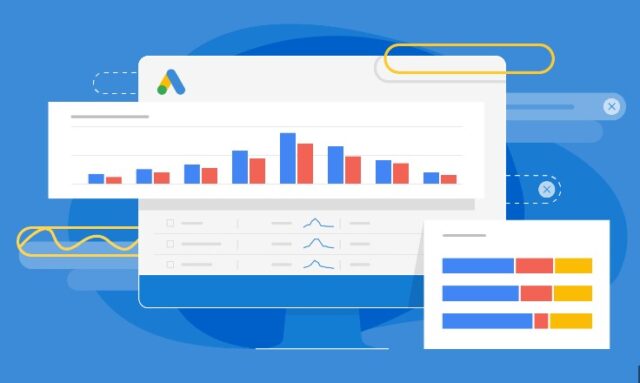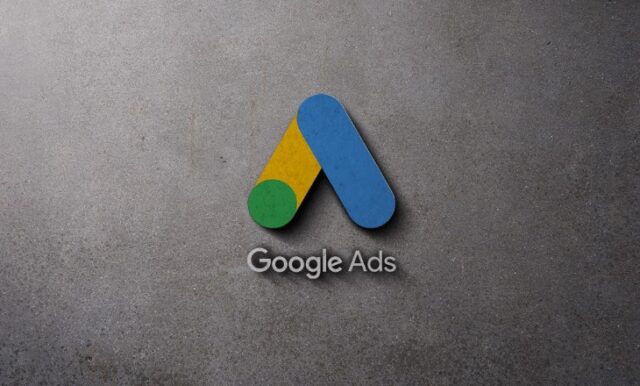
Are you ready to get up to speed on keyword bidding for Google Ads? If so, you’ve come to the right place! In this blog, we’ll cover all the basics and dig into the details of how keyword bidding works in Google Ads. So buckle up and get ready – by the end of this post, you’ll be an expert in keyword bidding in no time!
Keyword Bidding Process in Google Ads

Google Ads keyword bidding is a process where businesses bid for particular terms and phrases related to their products and services as part of their online marketing campaigns. This process helps Google determine which results are the most relevant and valuable to users, driving more traffic to websites in the process.
It is managed through an ad auction system. In this system, the bids advertisers place on each term or phrase they set up determines what will appear in search results page rankings. Generally speaking, higher bids will show more prominently in results than lower bids, increasing visibility and driving more clicks. This is why it’s important for businesses to weigh up the cost of a keyword bid against its potential value for their business when putting together an effective advertising campaign.
When deciding which phrases businesses should bid on, businesses need to look at factors such as relevance, search volume, and cost-effectiveness. These factors will help inform businesses’ decisions on which terms offer the best return on investment (ROI) when it comes to achieving their desired goals with Google Ads. You can also rely on Brisbane’s Google Ads specialists to guide you through this process and optimize your advertising campaigns. They have the expertise and knowledge to analyze your target audience, conduct keyword research, and create effective ad campaigns that deliver results. With their assistance, you can maximize your ROI and reach your business objectives efficiently.
At its core, it involves creating targeted ad campaigns that allow advertisers to tailor each campaign’s reach and success towards desired outcomes while staying within set budgets. Successful keyword bidding means understanding your business’s objectives, researching relevant terms based on those objectives, setting up meaningful budgets for individual ads and continuously measuring degree of success – all at once. With these steps in mind, you can use it to create successful campaigns that can drive valuable traffic towards your business’s website or product pages when carefully managed.
Features of Keyword Bidding in Google Ads

Advertisers in Google Ads provide a list of phrases that are relevant to their business and ads, as well as set a bid – the maximum cost-per-click (CPC) they are willing to pay every time a user clicks on their ads. Once submitted and approved, these keywords become part of the ad auction process. Understanding how keyword bidding works helps set more effective bids for successful campaigns.
Features of Keyword Bidding in Google Ads:
- Quality score – This metric gives a measure of the quality of an advertiser’s ad, keyword and landing page relevance to the topic at hand. A higher quality score reflects better ad performance while lowering costs per click (CPC) and improving potential ranking outcomes in search results.
- Bid amount – This is the maximum amount an advertiser is willing to pay for a single click on their ad. When selecting a bid amount, advertisers must take into account what they can afford but also keep in mind that more competitive bids may be necessary for top placement and visibility in search results pages (SERPs).
- Ad rank – This is determined by multiplying an advertiser’s quality score by its maximum CPCbid,, creating an overall rank position for their ads within their respective auction engine or SERP feature (e.g., Map Pack or Shopping Ads). A higher ad rank means better exposure, with Google awarding impressions based on whether an advertiser’s bid meets or exceeds the next best for placement within SERPs or engine features such as Google Maps.
- Impression share – This metric considers how often an advertiser’s ads show up after factoring how budgets or bids affect overall positions within SERPs or ENGINE FEATURES such as local map packs & shopping campaigns.
- Updated monthly – Google frequently updates its auction system algorithmically to reflect changes in consumer preferences and market fluctuations. A well-crafted campaign allows advertisers uninterrupted access to growing opportunities despite market fluctuations outside of their control.
Challenges of Keyword Bidding in Google Ads

Setting it up can be a complicated endeavor – there are many factors to consider and mistakes to avoid. Two important challenges include budgeting your bids appropriately and accurately tracking the results of your campaigns.
Budgeting: It is easy to overspend when trying to optimize keyword bids, particularly if you are running a competitive campaign. Google Ads allows users to set daily budgets and monthly budgets, so experiment with different variations until you find the level of spending that yields satisfactory results for the cost-conscious advertiser.
Tracking Results: In order to maximize the success of any Google Ads keyword bidding campaign, advertisers must accurately track their campaign’s performance. This means that they must carefully measure clicks, conversions, cost-per-click (CPC) rates and return on investment (ROI). Without this detailed data, it can be difficult to accurately discern which keywords generate the most traffic at an acceptable price point.
To help meet these challenges, Google Ads offers several useful tools such as bid adjustments, ad scheduling and advanced targeting options. By taking advantage of these available options, you can effectively manage your budget while still optimizing bids for greater long-term ROI. Additionally, establishing accurate tracking systems so that the results of campaigns can be followed closely is critical in ensuring their success.
Conclusion

To sum up, this is a powerful tool for driving targeted traffic to your website. Setting effective bids can help you rank higher in the search engine results pages and reach more potential customers. However, it requires a thorough understanding of your target audience and how they use the web to find what they need. The cost per click is also an important factor in deciding how much you should be bidding on keywords as it can affect your return on investment.
It’s essential to monitor bid adjustments regularly and adjust according to changes in your target audience’s behavior and market conditions. By using the right strategies, however, you can optimize Google Ads performance and get more out of your online advertising budget.









